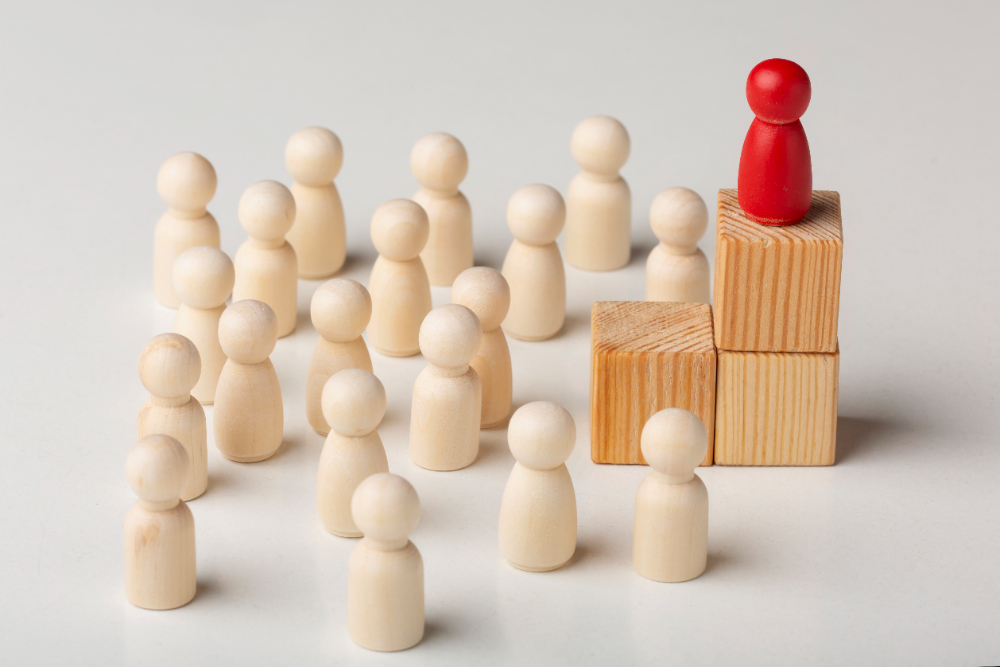
Table of Contents
Introduction
In the pursuit of becoming the best version of ourselves, two essential concepts often arise: personal development and character development. While these terms are frequently used interchangeably, they refer to distinct aspects of growth. Understanding the key differences between these two can help you unlock your full potential.
As a personal development coach, I often meet people who are keen on self-improvement but are not sure whether they should focus on character development or broader personal development.
In this blog, we will delve into these concepts, discuss their individual importance, and understand how they complement each other in your journey toward becoming the best version of yourself.
What is Personal Development?
Personal development is the intentional effort to improve one’s skills, abilities, and potential. It involves all activities aimed at enhancing your self-awareness, knowledge, and talents that lead to greater success in life and career.
At its core, personal development is about self-improvement—be it learning new skills, inculcating positive habits, or setting and achieving goals. It’s a lifelong journey that deals with striving for self-growth and realizing your fullest potential.
Typically, personal development involves:
Skill-building: Developing new skills or improving existing ones that can benefit your personal and professional life.
Goal setting: Defining clear goals and creating a roadmap to achieve them.
Time management: How to use time effectively and efficiently.
Mindset development: Focus on cultivating a positive and growth-oriented mindset.
Emotional intelligence: Understanding and managing your emotions and the emotions of others.
Personal development focuses on enhancing external capabilities but also nurtures your inner strength, which will eventually shape your character over time.
What is Character Development?
On the other hand, character development is the process of sharpening your character traits-the quality that defines who you are as a person. It’s about developing integrity, honesty, empathy, resilience, and other core values that shape your actions, decisions, and interactions with others.
Character development is more about developing qualities that guide your behavior than gaining new skills. It’s a deeper, more intrinsic form of self-improvement in terms of the moral and emotional aspects of a person’s identity.
Key aspects of character development include:
Self-reflection: Looking inward to evaluate your beliefs, values, and behaviors.
Moral integrity: Building a strong ethical foundation based on honesty, fairness, and respect.
Emotional resilience: Learning to bounce back with grace and strength from any challenge.
Responsibility: The ability to take responsibility for one’s actions or decisions.
Empathy: Comprehending and sharing the other person’s feelings in establishing meaningful relationships.
While personal development is about achieving tangible goals and external success, character development is about building who you are at the core. It’s not about what you can do; it’s about who you are and the principles you stand by.
The Key Differences Between Personal Development and Character Development
1. Focus and Intent

The main difference between personal development and character development is that which one to focus on. Personal development has been focused on improvement in the skills, capabilities, and overall effectiveness in life, while one may include mastering the skill of communication or developing strategies for success to becoming tougher mentally.
Character development, however, is based on the intrinsic qualities that define your character. It’s more about the inner values, beliefs, and habits that drive your behavior than external results. Character development includes things like improving your self-awareness and emotional intelligence, while also reinforcing your sense of morality and integrity.
2. External vs. Internal Growth
Personal development often leads to external growth—becoming better at something and achieving visible results, such as a promotion at work, a healthier lifestyle, or a new skill. It’s about setting goals, taking action, and seeing measurable outcomes.
On the other hand, character development is about inner growth, the cultivation of self-esteem, emotional stability, and integrity in dealing with life’s troubles. While the fruits of developing a character may not always surface at once, the improvements in your life and perhaps those of others are significant.
3. Skills vs. Traits
Personal development often involves the acquisition of specific skills. You can work on improving your leadership abilities, communication skills, or even time management strategies. Most of these skills can be learned and practiced over time, in most cases through structured methods or training.
Contrast character development focuses on traits which constitute character. These traits could include empathy, compassion, honesty, and even resilience. It differs from skills, which people easily learn through study or practice; however, character traits sometimes require self-reflection, and it takes a longer time in developing.
4. Measurable vs. Intangible Results
Usually, results in personal development are tangible and measurable. You can track your success either in achieving your goal-setting milestones or gaining new qualifications. Either way, whether it’s in improving your career prospects or building a new habit, personal development allows you to quantify the success in concrete terms.
Character development, however, tends to be less tangible. You don’t see the change; you don’t feel it, but time and again, your personal values, emotional intelligence, and interpersonal skills will improve. It’s more of a continuous process of refining your inner self and making choices that align with your core values.
How Personal Development and Character Development Work Together
Although personal development and character development are different concepts, they are actually interconnected concepts. Personal development provides you with the tools and skills to succeed in different areas of life, but it’s the character traits that will define how you apply those tools.
For example, becoming a better time manager (an aspect of personal growth) may get you further in your professional field. However, without a strong sense of integrity or empathy (core traits in character growth), those successes will not get you anywhere or perhaps worse even, may land you at odds with your personal moral compass.
On the other hand, working on your self-reflection and emotional resilience would create a strong foundation of inner strength and emotional stability, supporting and enhancing your ability to reach the set goals in your personal development journey.
When you combine personal development and character development, you actually create a holistic growth strategy that not only helps you achieve external success but also ensures that you do so in a way that is authentic, ethical, and aligned with your deeper sense of purpose.
Practical Steps to Foster Both Personal and Character Development
1. Embrace Self-Reflection
Self-reflection is the cornerstone of personal development and character development. It helps you take time to reflect on your actions, thoughts, and emotions, thus helping you identify areas of growth and making better decisions in the future. Self-reflection will help you understand your character traits and adjust your behavior accordingly.
2. Growth Mindset
Cultivate a growth mindset in developing both types of development. A growth mindset makes you view challenges as opportunities to learn instead of obstacles. This mindset lets you approach personal development, which may include learning new skills, and character development, which may include building resilience, as if you can improve over time.
3. Set Personal and Moral Goals
While personal development typically involves measurable goals like career moves, fitness targets, character development includes setting moral and emotional goals. For example, you can set up a goal for becoming a more empathetic person, or for living a life with integrity and values in all decisions. That way, both types of goals are in place so that the growth will be balanced.
4. Surround yourself with positive influences
The people you surround yourself with play a critical role in personal development and character building. You should seek mentors, role models, and communities that promote their growth. Their examples would inspire you to develop a stronger set of skills and good character qualities in relation to your values.
5. Practice Patience and Perseverance
Personal development and character development both require time and sustained effort. Though you will see immediate results in personal development, character development is a lifetime process that asks for patience. Cultivate perseverance in your efforts to build up both skills and character traits.
Personal Development and Character Development in Practice
To effectively engage with both personal development and character development, it is important to apply them practically in everyday life. The integration of these two aspects can elevate your sense of fulfillment and provide long-term growth. Below are some actionable ways to practice these principles in your daily life.
1. Continuous Learning and Self-Reflection
As mentioned earlier, self-reflection is essential in both personal and character growth. It allows you to review your actions, decisions, and emotional responses. However, reflection doesn’t only occur in moments of crisis—it should be a part of your routine.
Start by setting aside time at the end of each day to reflect on how you acted, whether your behavior aligned with your values, and if you were successful in managing your emotions. This is a regular practice of self-reflection that can show you areas where your character traits, such as patience, empathy, or honesty, could be improved.
It also helps you realize when you have made progress, which reinforces a positive mindset and commitment to both personal development and character development.
You can do this by journaling, which helps you track your thoughts, insights, and the progress you’re making. Writing down your reflections gives you clarity and reinforces your commitment to growth. Ask yourself questions like:
Did I behave with integrity today?
Did I approach challenges with emotional resilience?
How did my actions contribute to my personal growth today?
2. Building Strong Habits

Building habits that help you in the long term is another essential personal development area. Habits don’t just impact your productivity or success, though; they are equally critical for character building. Such habits as consistently being kind or following up on promises develop characteristics like reliability, integrity, and compassion.
Start by identifying a small habit that aligns with your personal development goals—perhaps waking up early, practicing mindfulness, or reading for 30 minutes a day.
Then, consider adding a habit that nurtures your character development—such as reflecting on what you’re grateful for every morning, actively listening in conversations, or choosing to be patient in challenging situations.
These habits, when practiced over time, tend to mold not only what you do and achieve but also who you are.
3. Dealing with Adversities with Resilience and with Integrity
One of the areas in which personal growth and character development blend is how a person deals with challenges. Life comes with various adversities. The way a person deals with them can say much concerning his character and personal growth features.
Emotional resilience, a key component of character development, helps you face challenges without losing your composure or self-worth.
Personal development gives you the tools to cope, whether it’s through problem-solving skills or stress-management techniques.
When faced with difficulty, practicing resilience allows you to bounce back stronger. Moreover, maintaining integrity through tough times strengthens your character—choosing to act ethically even when the situation makes it easier to compromise your values.
For instance, while you’re on a long-term project, when setbacks occur, you can rely on your personal development tools to keep track and solve the problems. You demonstrate integrity and accountability if you choose to remain honest and truthful to others even when everybody around you wants to cut corners to make life easy.
4. Building Empathy and Understanding
Empathy-the ability to understand and share the feelings of others-is one of the most important elements in the development of character. A vital part of personal as well as professional relationships, empathy is also a significant attribute of successful communication and leadership.
Personal development can enhance your ability to build emotional intelligence, which directly impacts your level of empathy. Whether it’s through developing self-awareness or learning to manage your emotions, becoming more emotionally intelligent will help you connect with others on a deeper level.
Develop empathy by listening to others actively, seeking to understand him without judgment, and acting compassionately. In the workplace, this would mean to work in an environment where someone sees his colleagues’ challenges, shares with them, and even shows patience with his procedures.
In personal relationships, this allows one to bond and communicate with those close to him in greater ways.
5. Balancing goals for both personal growth and character development

While personal development is often centered on specific goals, such as getting a promotion or increasing productivity, character development is setting broader, more abstract goals that contribute to the person you wish to become.
This is where balance comes in. When you set goals for personal development, make sure they are complemented by character development goals as well.
For example, if you wanted to develop your leadership abilities as a personal development goal, it should align with developing empathy and integrity-the key character traits for successful leadership. You could also work on increasing your emotional intelligence or to be more accountable in personal or professional life.
Setting goals in both areas ensures that your growth is holistic and that you are working towards being skilled and virtuous. You could break down your goals into two categories:
Personal Development Goals:
Improve your ability to manage time
Learn a new language or skill
Career milestone
Mental toughness and resilience
Character Development Goals:
Practice gratitude daily
Be patient when it’s stressful
Improve your communication skills and listen actively
Grow in responsibility and accountability
Balancing both kinds of goals ensures that growth will be all-rounded and more consistent with true values.
6. The Art of Welcoming Criticism and Continued Learning
Feedback from others is a perfect means of growth in personal development as well as character development. Seek it from mentors, colleagues, friends, and even your family. They could make insightful suggestions about where you should continue growing.
In personal development, constructive criticism can help you refine skills or uncover blind spots. From the standpoint of character development, it can provide you with information about ways in which you may have to improve your emotional response, integrity, or leadership style.
After receiving feedback, self-reflection is important. Take some time to process what was said and assess how it lines up with your growth goals. Be open to adjusting your behavior and thinking, and use the feedback to continue evolving both as a person and as a professional.
Conclusion: The Power of Integrating Personal and Character Development
In the end, personal development and character development are two sides of the same coin. While personal development focuses on improving skills, abilities, and measurable achievements, character development is about shaping your inner qualities that influence how you interact with the world. Both are critical for leading a fulfilling and successful life.
As you walk the growth journey, remember that it is not only about becoming better at what you do but, rather, becoming a better person as you do. The right balance between personal development and character development will ensure you are great at your work and in your life and lay a foundation of integrity, empathy, and resilience that will last for a lifetime.
Embracing both areas of growth, you will create a whole, authentic version of yourself—a skilled, compassionate, and value-driven human being. A balanced approach to growth will enable you to succeed, face challenges with ease, and live a meaningful life reflective of your true potential.

